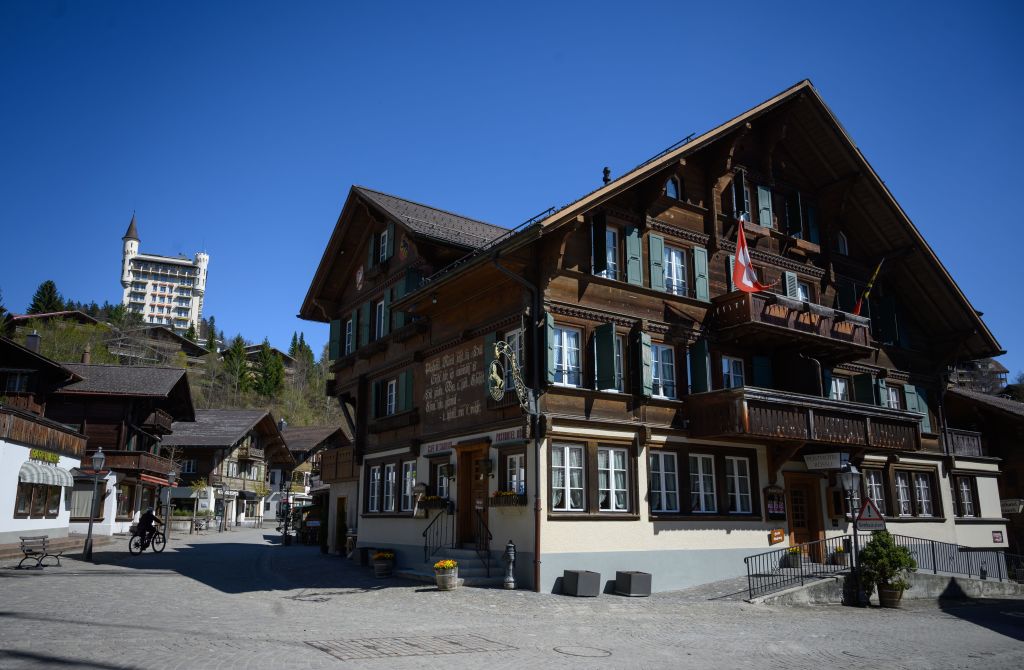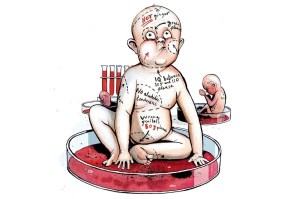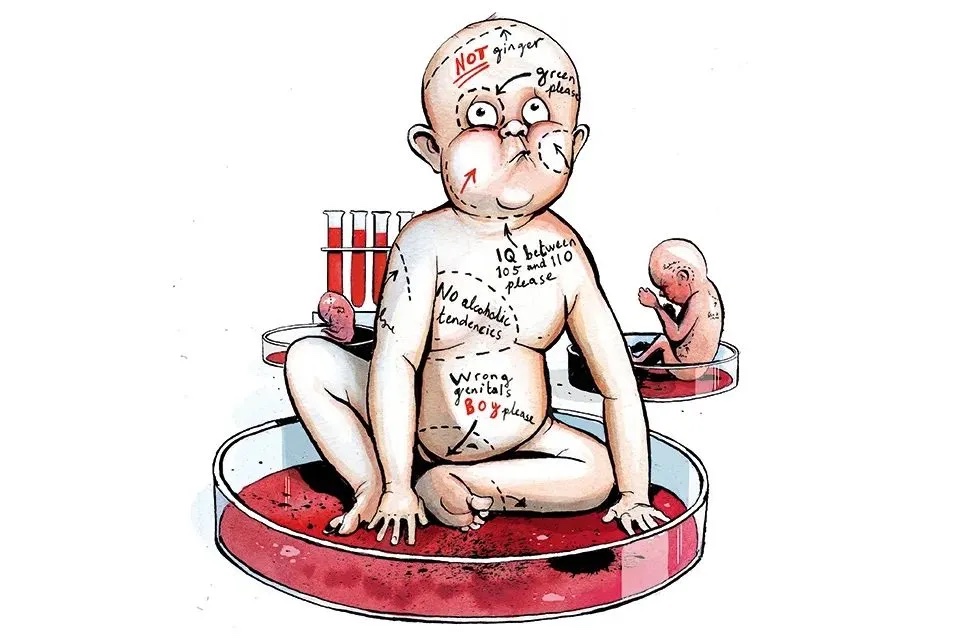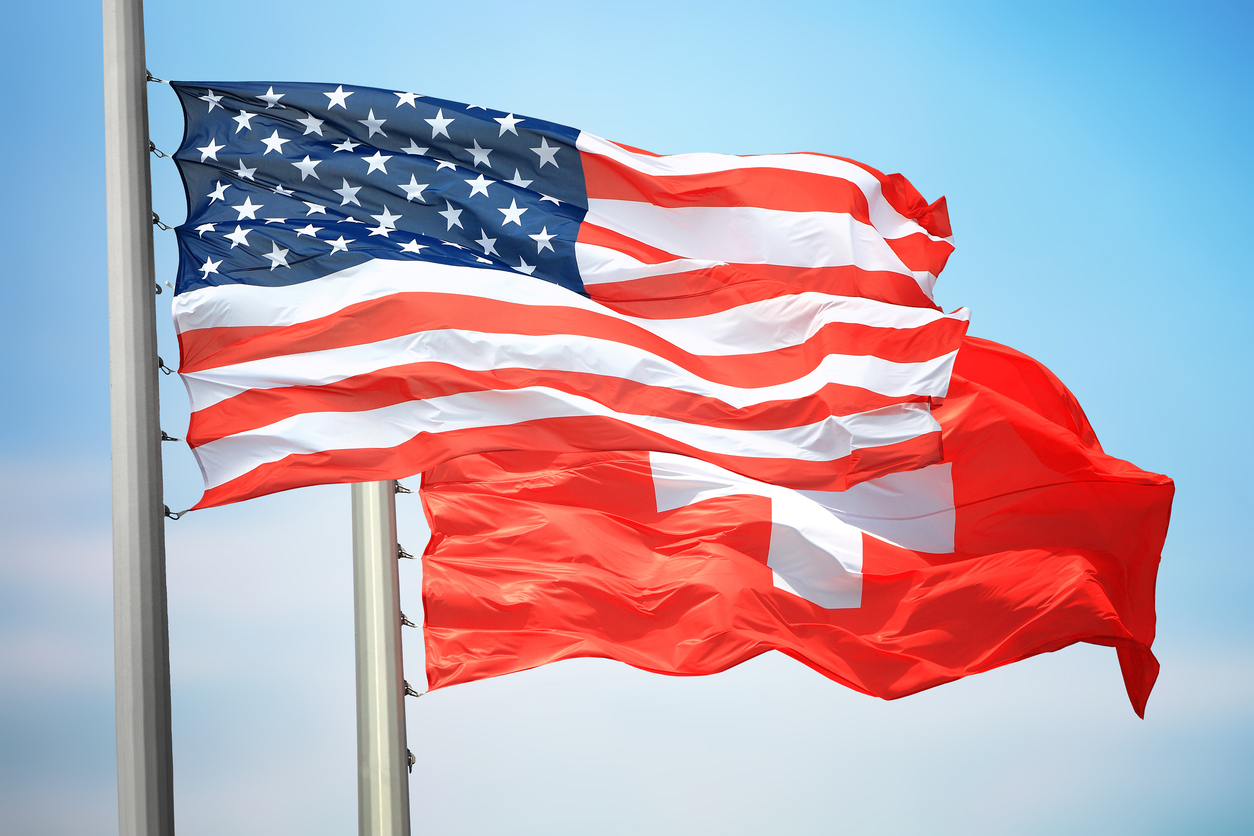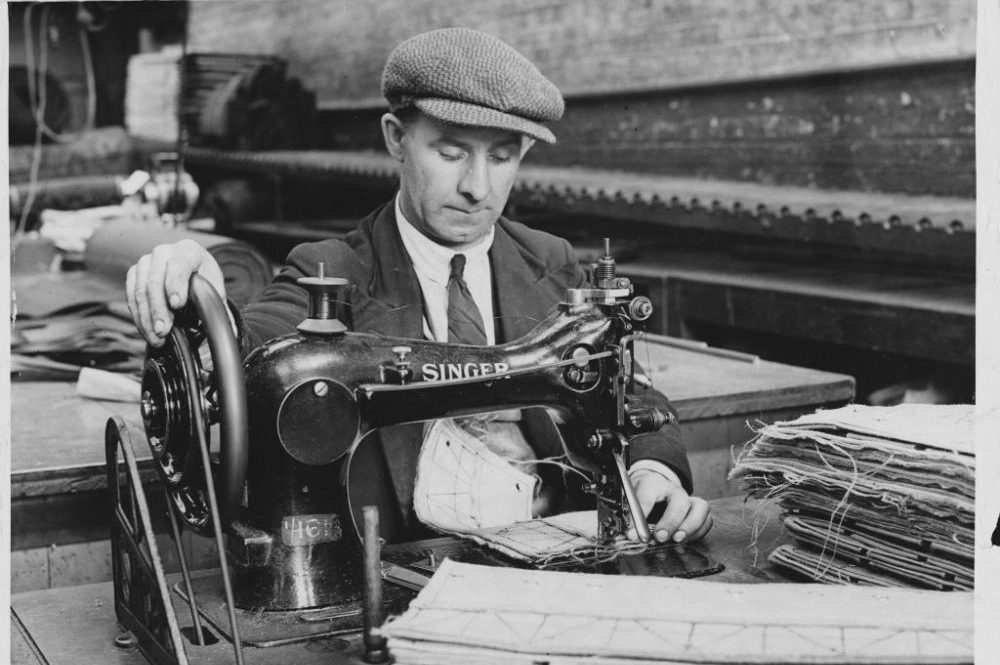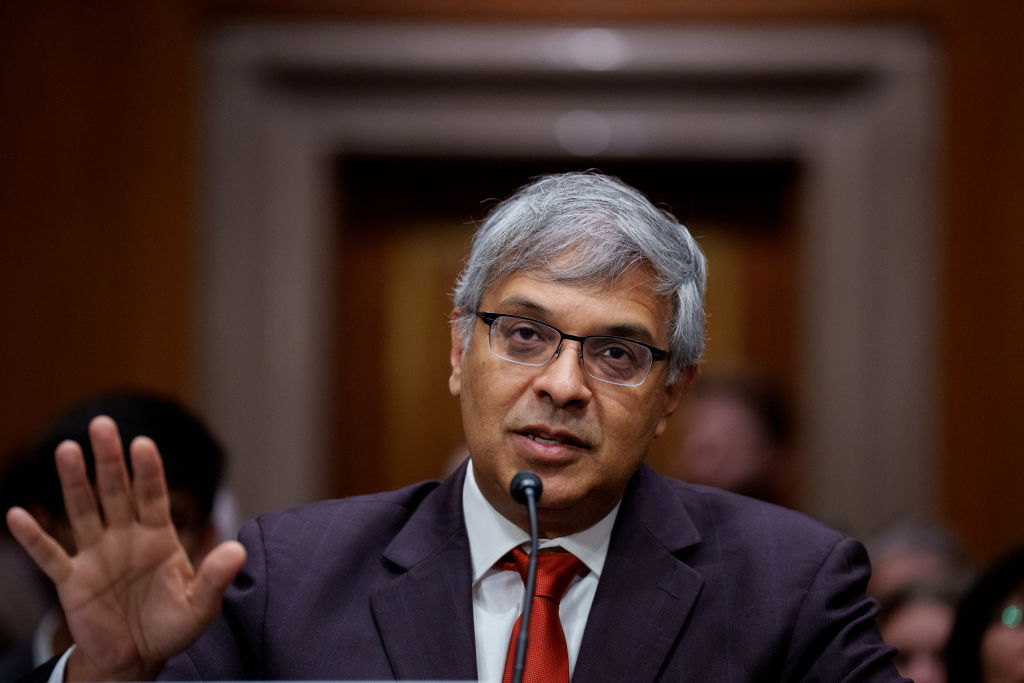Gstaad, Switzerland
I shoulda been a weatherman: no sooner had I announced snow to be a Gstaad rarity than it came down nonstop. But then it rained, so everything’s hunky-dory. Older rich people who don’t ski are relieved that it’s stopped; younger types who do indulge are over the moon that it’s snowed at all. Happy, happy Gstaad…but not really; the coronavirus news has some scared out of their wits. In fact, this alpine village is beginning to feel like Der Tod in Venedig, or Death in Venice for non-German speakers.
The great South African doubles specialist Frew McMillan, now the best tennis commentator on television, used to call me Dirk, as in Bogarde, because he thought I looked a bit like the thespian. ‘Different sexual proclivities,’ I used to shout back at him. Dirk was great as Aschenbach in Death in Venice.
And then there was my grandson Taki announcing at dinner that I was the likeliest to catch the damn thing because I’m over 80, have smoked for 70 years, and go around shaking hands with all sorts of strangers when I’m drunk.
What is it they say about from the mouths of babes? But death is on everyone’s mind nowadays, especially in this small community inhabited by people who don’t have the chore of the daily nine-to-five. The young who ski know that they will never die. The oldies cling to a fantasy life and think that death will not happen today or tomorrow but sometime in the faraway future. Life should be celebrated for its ephemeral beauty, with death recognized as being ever-present and just around the corner. Only self-centered people fear death. It’s as natural as life, and everyone’s bound to experience it. Living dangerously helps put death in the right perspective.
One thing is for sure: in this hyperconnected world, those who run our lives were slow to yell fire in case we insulted the Chinese. I’m not saying we should go back to treating them badly, but we should remember that commies always speak with forked tongues. China should have been isolated as early as last December, but we were all too busy waiting for Nike sweatshops to deliver their cheaply made goods for our Christmas trees. Now we’re doing the sweating, and all of Italy is shut down. And even now, fake news journals such as the New York Times are reluctant to write anything that might give aid and comfort to anti-globalization forces in case they sound like the Donald.
The great scholar John Sutherland wrote in the pages of the UK version of this magazine that Tolstoy’s The Death of Ivan Ilyich should be given free to all seniors by the authorities. It would serve as a reminder of the trip they will soon be taking. It’s pretty grim towards the end because Ivan is a bore but then turns into a Gstaad type when facing a horrible death from the big C. ‘Why must I die…?’ I suppose that many of us would ask that question when the man in the white suit comes calling, but then some of us might not. I saw my friend Henry Wyndham the other night, and he’s not the kind to ask Ivan-type questions. All he does is raise money for cancer patients. I saw him at a dinner given by Mick Flick, the Mercedes-Benz heir, who sat up late with me and spoke about the white-suited man. Mick thinks that one should prepare for him. I said he should go fuck himself — the white-suited one, that is.
Earlier that evening, I had gone to another dinner chez Eric and Louise Franck, who live in one of the oldest and most beautiful chalets in Gstaad. Cosima Somerset and Kirstie Allsopp were pleasant surprises; likewise Barry and Lizzie Humphries, and the Desmaraises from Canada, who have a chalet here in Gstaad. Not only are they the richest people in that rather large country, they are also the nicest. The mother, Jackie Desmarais, who died a couple of years ago, was one of the best women I’ve ever met. She was a Spectator reader, and when I was at her incredible house in Montreal for a wedding I was rather down because both my mistress and my wife were about to dump me. ‘That would be a catastrophe,’ said Jackie. ‘Put all your efforts into saving the wife.’
Good advice from a very wise lady. And of course there are some very nice people in Gstaad (I just mentioned some of them), just as there are some not-so-nice ones, whom I won’t mention. Gstaad itself can be very pleasant, especially when the ritzy-glitzy leave and the slopes become skiable again. The locals have overbuilt, and there are too many apartments lying empty, but at least every chalet conforms to the Siebenthaler style, so the place always looks like a Swiss village rather than Las Vegas-by-the-Matterhorn.
Last but not least, the Dutch television series How to Be a Man, featuring yours truly, came through. The wife thought that the nice Dutch crew would do a hatchet job to top all hatchet jobs on me, but her fears were not realized. I do not speak Dutch and don’t know anyone who does, but they were very fair. My part was in English and they didn’t touch it up or add any American feminist-type rubbish. If it had been an American crew, I’d probably be at Rikers by now, keeping you know who company
This article is in The Spectator’s May 2020 US edition.



